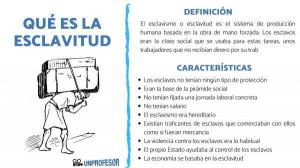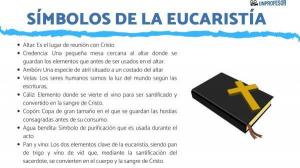Ludwig WITTGENSTEIN's Thought
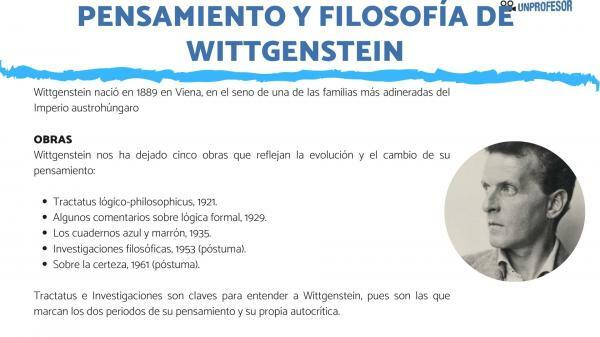
In today's lesson from a Professor we will delve into the thought of one of the most interesting and peculiar philosophers of the 20th century, Ludwig Wittgenstein (1889-1951), which, throughout his career, focused on analyzing the functioning of language and its relationship with reality and knowledge-thought.
However, one of the peculiarities of Wittegenstein's thought is that it is divided into two different periods: 1) The first Wittegenstein: Associated with his work Tractatus logico-philosophicus (1921) and the neopositivist current (logical positivism). 2) The second Wittegenstein: Linked to his posthumous work Philosophical Investigations (1953) and analytical philosophy.
Do you want to know more about Ludwig Wittgenstein? Keep reading because in a PROFESSOR we explain the thought of this philosopher.
Index
- Who is Ludwig Wittgenstein?
- The thought of the first Wittgenstein: Tractatus logico- philosophicus
- The Thought of the Second Wittgenstein: Philosophical Investigations
- What is philosophy for Wittgenstein?
Who is Ludwig Wittgenstein?
Wittgenstein He was born in 1889 in Vienna, into one of the wealthier families of the Austro-Hungarian Empire (linked to the steel industry). Our protagonist, along with his nine siblings, grew up in a intellectual and cultural environment very rich. Coming to have contact with the composer Gustav Mahler and the painter Gustav Klimt.
Also, he received a very careful education and, although he first became interested in aeronautical engineering, shortly after his interest in philosophy was born. An interest that he developed in Cambridge (England) at the hand of the philosopher Bertrand Russell and that he maintained until his death, in 1951, caused by prostate cancer.
As a philosophical legacy, Wittgenstein has left us five works that reflect the evolution and change of his thinking:
- Tractatus logico-philosophicus, 1921.
- Some Comments on Formal Logic, 1929.
- The Blue and Brown Notebooks, 1935.
- Philosophical Investigations, 1953 (posthumous).
- On certainty, 1961 (posthumous).
Of all of them, the Tractatus and Research, are keys to understanding Wittgenstein, since they are the ones that mark the two periods of his thought and his own self-criticism. In both, we observe how the philosopher analyzes language from two different perspectives.
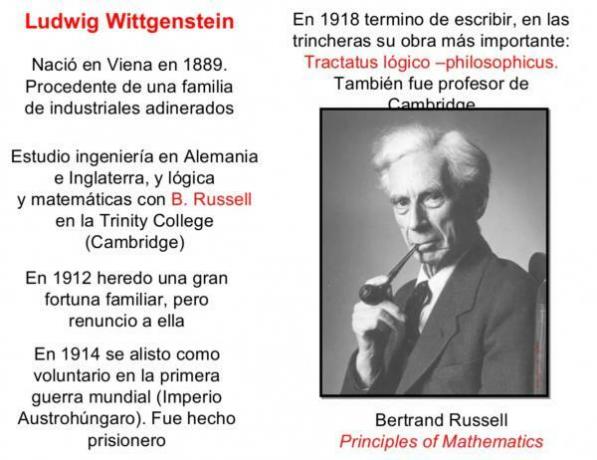
The thought of the first Wittgenstein: Tractatus logico-philosophicus.
The Tractatus is the first work published by Wittgenstein, which is framed within the positivism logical. With this approach language from logic, that is, it tries to explain to us how the logic on which our language and our world develop, both closely linked, works.
Hence you tell us that"The limits of my language are the limits of my world" = What I can express exists and what I cannot express does not exist. Thus, the richer my vocabulary my world is wider and the poorer my vocabulary my world is more limited.
In this way, within language, Wittgenstein differentiates between:
1. What can be talked about
It is made up of reality and the world. The latter is made up of the events that occur in time, therefore, the world would be the totality of events (entities or things) and language that which describes the events. Likewise, Wittgenstein establishes an analogy between language and painting: words make a painting of our world, since language is a map of reality and a word is linked to a thing or image.
On the other hand, on the edge of the world would be those entities or things that philosophy discusses: the nature of man, logic, aesthetic values, moral values ...
2. What you can't talk about
Everything that is outside our world and reality, the mystical (God). What is inexpressible.
In short, it all comes down to his famous phrase “What you can't talk about you have to keep quiet ”.
The thought of the second Wittgenstein: Philosophical investigations.
In this posthumous work by Wittgenstein his position changes and even makes self-criticism, establishing that his thesis of Tractatus It is wrong.
Now, from a more analytical and pragmatic perspective, he states that We must not analyze the language from logic but from the use that we give it. Thus, a word would no longer be linked to a thing or an image, since expressions such as Dammit! they are not related to a specific thing.
Now language is not a reflection of reality, it is a reflection of the ways of life of the speakers. That is, there is not a single language but many, which refer to the ways of life or different cultures. What Wittgenstein defines as language games (pray, give orders, sing, beg, translate, greet ...) that have their own rules, a specific context and that they belong to a community.
Therefore, language belongs to a community and not the individual. Hence, I affirm that language is something public and that private language does not exist.
Likewise, for our protagonist, language would have a mechanism similar to that of the physical similarities that exist in a family:
“Just as the various resemblances within the members of a family overlap and intersect, so does language. Language games make up a family "
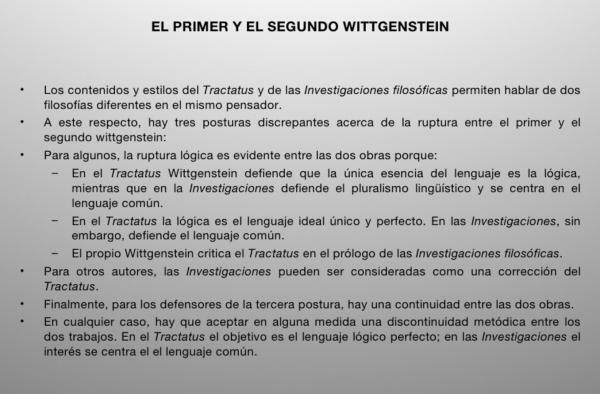
Image: Sliideshare
What is philosophy for Wittgenstein?
Another of the most interesting points of Witgenstein's thought is a concept of philosophy. For him, philosophy should not be a doctrine but an activity that must criticize language and whose objective is to solve, diagnose and make us see the spell of language, its errors:
“Philosophy must help us to avoid the bewitchment of our intelligence through language ”.
Thus, philosophy understood as one that is capable of giving us information about reality or "solving" philosophical problems, is not correct. Well, we must bear in mind that these philosophical problems are created, they are pseudo-problems, it is something false and the result of linguistic confusion / spell. Therefore, that philosophy which makes entangle and bewitch through language and, therefore, traditional philosophy is invalid.
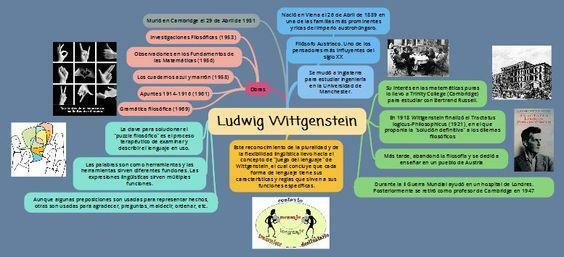
If you want to read more articles similar to Ludwig Wittgenstein's Thought - Summary, we recommend that you enter our category of Philosophy.
Bibliography
- Yesterday, A.J. Wittgenstein. Criticism. 1986
- Heaton, J. and Groves, J. Wittgenstein for beginners. Illustrated Documents. 2002

